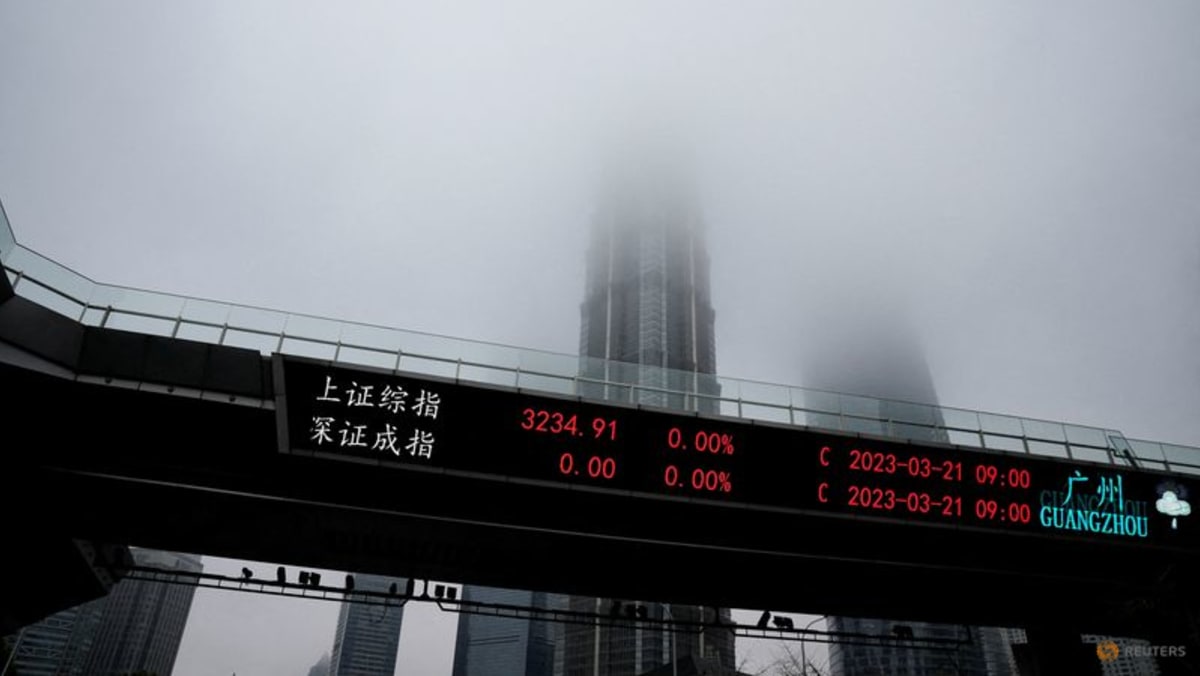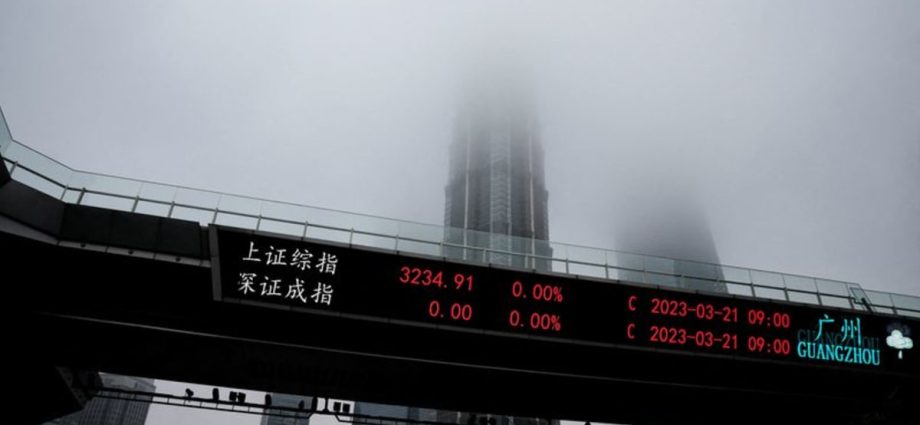
The onshore yuan eased roughly 0.3 per cent to about 7.30 per dollar.
The dip came despite Beijing’s recent vow to stabilise the currency and much stronger than expected central bank guidance, as investors struggled to shake broader worries about weak exports, sluggish consumption and property market woes.
Earlier on Monday, China lowered its one-year benchmark lending rate, but surprised markets by keeping unchanged the five-year rate – on which mortgage rates are based.
Analysts say Monday’s modest rate cut shows authorities are concerned about the risks of a major yuan selloff and capital flight, with any easing likely to widen the yawning gap between interest rates in China and its major trading partners.
Those worries could limit the scope policymakers have to loosen monetary settings, which would only add to investor disappointment about Beijing’s response to the current economic slowdown.
“Probably China limited the size and scope of rate cuts because they are concerned about downward pressure on the yuan,” said Masayuki Kichikawa, chief macro strategist at Sumitomo Mitsui DS Asset Management. “Chinese authorities care about currency market stability.”
SHARE BUYBACKS
Investors were already unenthused even as dozens of China-listed companies outlined plans over the weekend to purchase their own shares in answer to regulators’ call for share buybacks.
More than 30 companies including chipmaker Loongson Technology Corp and Xian Manareco New Materials Co said in identical statements that their controlling shareholders had proposed buying back shares because of “confidence in the companies’ future development and value”.
Meanwhile, at least a dozen asset managers, including E Fund Asset Management Co and China Asset Management Co said they would use their own money to buy into equity funds.
Yang Tingwu, vice general manager of hedge fund house Tongheng Investment, said “such statements are merely gestures and the money involved is negligible.”
“The market was disillusioned by the regulators’ measures, which basically mean the current stock market level is acceptable.”
The package of measures announced by the China Securities Regulatory Commission (CSRC) on Friday include cutting trading costs, encouraging long-term investment and studying plans to extend trading hours.
But the CSRC didn’t announce a cut in stamp duty or the introduction of a so-called “T+0” trading mechanism to allow shares to be bought and sold on the same day – measures that had been keenly anticipated by investors.
Reflecting market pessimism, Goldman Sachs on Monday cut its forecast on Chinese stocks, expecting a lower trading range until more forceful responses to the housing market woes.
Hong Hao, chief economist at GROW Investment Group, said China needs policy goals that include specific numbers, such as the size of infrastructure stimulus, or how many flats will be redeveloped under the urban village revamp programme.
“To boost confidence, what we need now is a ‘flood-irrigation’ approach rather than targeted, piecemeal policies.”

